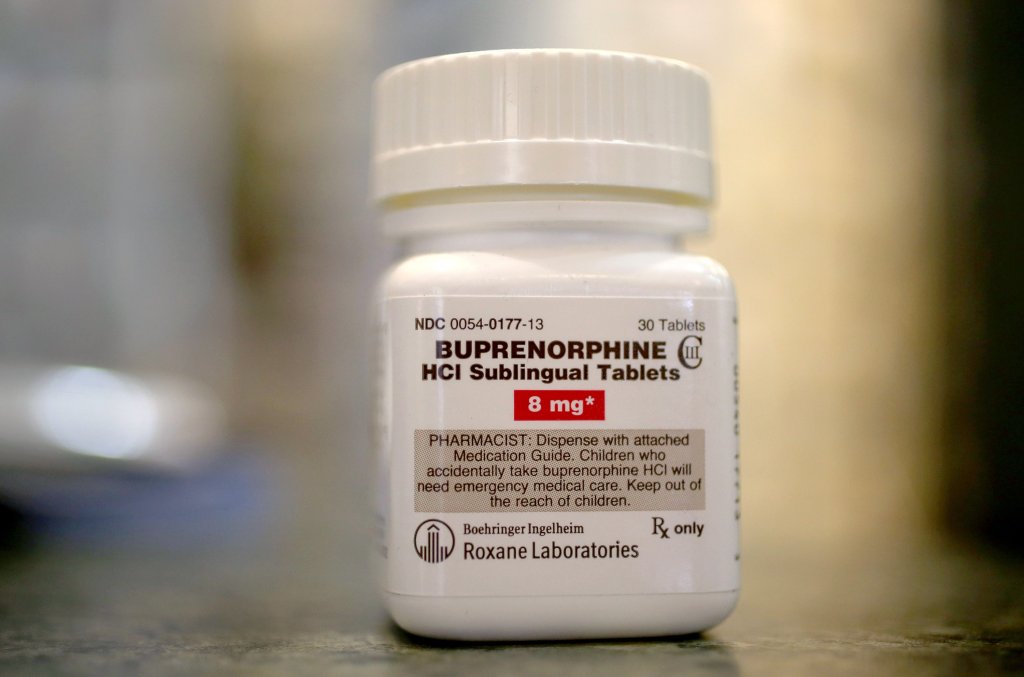6:04
News Story
Pharmacists in Nevada will soon be able to prescribe opioid addiction medication
Pharmacists in Nevada will soon be able to prescribe medications designed to help opioid addiction.
The regulation, R059-23, was approved Tuesday by the Legislative Commission, a 11-member bipartisan board of legislators that gives final stamps of approval on regulations established by executive branch agencies and boards. State Sen. Lisa Krasner, R-Reno, cast the only vote in opposition.
The change is the result of Assembly Bill 156, which passed the Nevada State Legislature with unanimous support last year.
Drugs like buprenorphine and naltrexone have been proven to reduce cravings and withdrawal symptoms and help people achieve long-term recovery, wrote Nevada Pharmacy Alliance President Amy Hale in a letter of support for the regulation, but are underutilized across the state, especially in rural communities.
Nevada ranks 40th in the nation when it comes to prescribing rates of these types of medications.
Pharmacists will have to register with the Nevada State Board of Pharmacy if they want to assess opioid use disorder and prescribe medication assisted treatment, also known as MAT. They will also be required to complete eight hours of addiction training, which is a requirement of the federal Drug Enforcement Agency.
State Sen. Jeff Stone, R-Henderson, said he would have preferred the state board require continuing education on MAT for pharmacists who opt into prescribing them. Dave Wuest, executive secretary for the pharmacy board, said pharmacists can roll that type of recurring training into the general continuing education required by the state for licensure. He noted that AB156 did not mandate recurrent training.
Stone noted that similar expansions of scope have been adopted with success. Pharmacists in Nevada are able to prescribe without a prescription vaccines and birth control, as well as HIV pre-exposure prophylaxis (PeEP) and post-exposure prophylaxis (PEP).
Senate Majority Leader Nicole Cannizzaro urged the State Board of Pharmacy to “keep an eye on” what the regulation looks like in practice once adopted and offer feedback so adjustments can be made, if needed.
The prospect of pharmacists and MAT has faced some opposition, primarily from the Nevada Psychiatric Association, which argues vulnerable people may not receive the full support needed when facing opioid use disorder. The association noted that requirements surrounding medication assisted treatment differ for medical doctors, advanced practice registered nurses, pharmacists, and other providers.
“We’re treating our prescribing providers differently,” said Lea Case, representing the psychiatrists, “aligning those requirements would make a lot of sense.”
Barry Cole, a Reno-based psychiatrist, echoed those concerns: “What is required of medical physicians, osteopathic physicians, nurse practitioners, physicians assistants, even our residents in training when learning to do this requires them to be supervised, to have competent recurrent education and to have a system so that after starting medication they go on to the counseling. It’s not meds only but meds in addition to counseling.”
Cole said that may be something health systems with pharmacists could provide but it will not be easily undertaken at local commercial pharmacists.
Zach Rosko, a Nevada Pharmacy Alliance board member who also works in Idaho, told lawmakers the Gem State established similar provisions for pharmacists there in July 2023.
“In Idaho we don’t see pharmacists at every pharmacy providing these services without care and consideration for the other services patients need,” he said. “Small communities, those that are very resource deprived, have seen an uptake in independent community pharmacists (providing the service).”
These independent pharmacies have appropriate space and connections with community partners that can provide and refer to wraparound services, continued Rosko.
“In a small community where there was not a single provider for Medicaid for opioid use disorder, an independent pharmacy was able to provide services and has now provided care for about 90 patients in their community.”
Our stories may be republished online or in print under Creative Commons license CC BY-NC-ND 4.0. We ask that you edit only for style or to shorten, provide proper attribution and link to our website. AP and Getty images may not be republished. Please see our republishing guidelines for use of any other photos and graphics.




